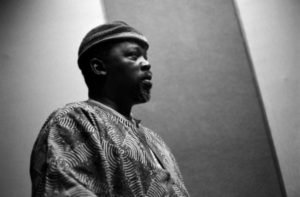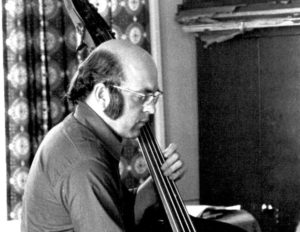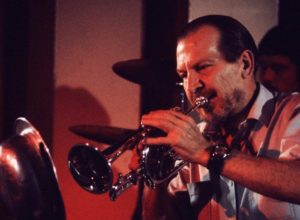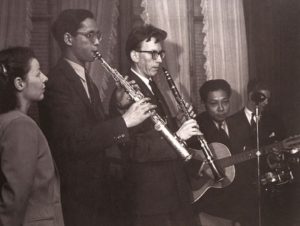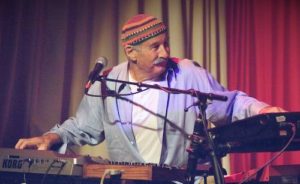Tony Coe
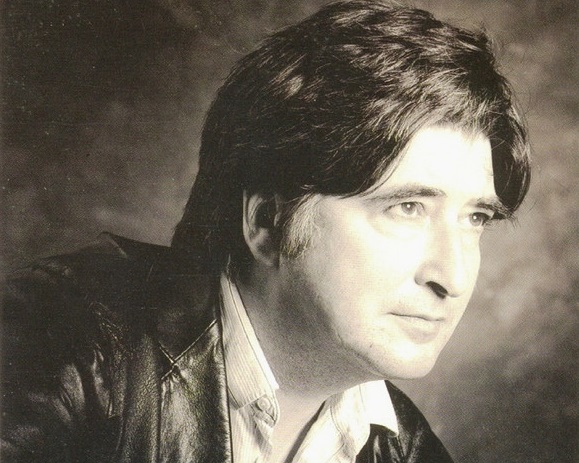
In 1995 saxophonist/clarinettist Tony Coe (born 1934) became the first non-American musician to be awarded the prestigious Jazzpar prize. He has been a first choice sideman and session musician on clarinet and saxophone for countless high profile musicians including Stan Getz, Dizzy Gillespie, Teddy Wilson, Buck Clayton, Henry Mancini and Cleo Laine.
Coe was born in Canterbury and played clarinet in his school orchestra. He taught himself saxophone. Still a teenager, he played in drummer Joe Daniels‘ group, touring the UK and making his first recordings with the group in 1952, alongside Don Lusher and Neville Skrimshire. During three years of military service, he was a member of army bands, before rejoining Daniels in 1956. A year later, he joined Humphrey Lyttelton‘s band, which by this time was playing in a mainstream style. During his four year stint with the band, his band mates included Kathy Stobart, Joe Temperley, Jimmy Skidmore and Eddie Harvey. Outside of numerous recordings with Lyttelton, he played on sessions with Al Fairweather, Nat Gonella, Stan Tracey, and in 1958 with Kenny Baker and George Chisholm in an all-star Melody Maker Poll Winners’ band. Coe and Lyttelton’s trombonist John Picard co-led a quinet from 1958, which continued through the 1960s.
Coe was perfectly happy switching between the traditional and mainstream groups and the modernist groups of people like Michael Garrick, with whom he can be heard on the classic album Black Marigolds from 1966, with Joe Harriott and Ian Carr. In 1968, he was on another classic British jazz album, Windmill Tilter with Kenny Wheeler and the John Dankworth Orchestra. From 1968, Coe became a member of the Francy Boland/Kenny Clarke Big Band in a saxophone section with Ronnie Scott, Sahib Shihab and Johnny Griffin. The band had an equally impressive trumpet section with Jimmy Deuchar, Benny Bailey, Duško Gojković and Idrees Sulieman.
In 1970 Coe recorded on clarinet with Ben Webster and a string section, and again with orchestral backing on an album Pop Makes Progress with arrangements by Robert Farnon. During the 1970s, he worked with Richard Rodney Bennett, George Chisholm and Elaine Delmar, as well as recording albums with Americans Frank Ricotti, and on the PizzaExpress label, Al Grey. This period also Coe working in more experimental settings: in Derek Bailey‘s avant garde Company, on singer-songwriter John Martyn‘s album Solid Air, in classical sessions with Pierre Boulez and Alan Hacker, and in an Arts Council funded orchestral jazz-rock work ‘Zeitgeist’ he composed and recorded for EMI in 1976.
From the 1980s, Coe concentrated more on his own groups and compositions, recording several albums for the French label, Nato. He had replaced Plas Johnson playing the familiar ‘Pink Panther’ sax part in later films in that series, and in 1985, he paid tribute to its composer, Henry Mancini on an album with Tony Hymas and Chris Laurence. In 1988, he recorded Canterbury Song with Boland-Clarke alumni Benny Bailey and Jimmy Woode, and two more American ex-pats, Horace Parlan and Idris Muhammad. He worked with the Danish Radio Jazz Orchestra and Bob Brookmeyer in 1995. Coe recorded frequently as a band leader and a sideman in the late 1990s and early 2000s with (among many others) Norma Winstone, Alan Barnes, Warren Vache, Tina May, Roger Kellaway, Frank Koglmann, Steve Beresford, Lol Coxhill and Digby Fairweather. In recent years, he has retired from live performance due to ill health.
Key Recordings:
With Humphrey Lyttelton and Francy Boland/Kenny Clarke Orchestra
Canterbury Song (Hot House 1988)
Days Of Wine And Roses (Zephyr 1997)
British-American Blue (Between The Lines 2000) with Roger Kellaway
